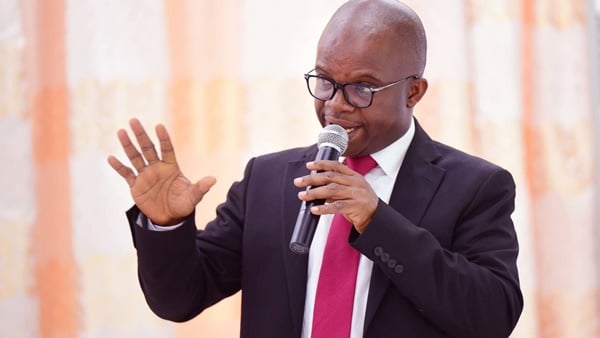Stephen Amoah, Member of Parliament for Nhyiaeso Constituency, has ignited a national dialogue on the intersection of religion, politics, and resource distribution in Ghana. His central argument revolves around the need for Ghanaians, especially Christians, to confront and dismantle prevailing biases against Muslims, particularly in the realm of political leadership. Amoah contends that the abundance of oil resources in predominantly Muslim regions globally serves as divine proof of their legitimacy as God’s people, challenging the notion that Muslims are somehow less favored. This provocative assertion directly addresses the underlying prejudice that often hinders the acceptance of Muslim candidates for high office.
Amoah’s statement underscores a sensitive issue within Ghanaian society: the reluctance of some Christian voters to support Muslim presidential candidates. He candidly acknowledges this reality, stating that “Christians hardly want to vote for a Muslim leader,” and emphasizes the importance of open acknowledgment rather than denial. By bringing this often unspoken bias into the open, he encourages a crucial national conversation about the role of religious identity in political choices. He argues that confronting this reality is the first step towards dismantling it and fostering a more inclusive and equitable political landscape.
Further amplifying his point, Amoah disclosed the existence of pre-election maneuvering within certain Christian circles aimed at influencing public opinion against a potential Muslim candidate. He revealed the establishment of WhatsApp platforms specifically designed to strategize against this candidate. While disagreeing with these tactics, Amoah’s revelation underscores the covert nature of religious politicking and its potential to undermine democratic processes. His willingness to expose these activities, even those within his own religious community, demonstrates a commitment to transparency and accountability in addressing this sensitive issue.
Amoah’s statements invite reflection on the complex relationship between faith and political participation in Ghana. His argument extends beyond simply acknowledging the existence of bias; it challenges the theological underpinnings of such prejudice. By linking the presence of natural resources, specifically oil, to the divine favor bestowed upon Muslim-majority nations, he seeks to dismantle the narrative that might suggest otherwise. This strategic use of a theological argument aims to resonate with the Christian community he is directly addressing, challenging them to reconsider their preconceived notions about Muslims and their place in Ghanaian society.
The core of Amoah’s message is a call for self-reflection and a commitment to addressing systemic biases. He urges Ghanaians to acknowledge the “uncomfortable truths” that permeate the nation’s socio-political fabric, emphasizing that honest confrontation is the only pathway to meaningful solutions. He advocates for a shift away from denial and towards a proactive approach in dismantling discriminatory practices. This call for introspection extends beyond the individual level to encompass institutional and societal reform, emphasizing the collective responsibility to create a more inclusive and just society.
By linking the presence of oil resources to the divine legitimacy of Muslims, Amoah strategically utilizes a theological argument to challenge ingrained prejudices. This approach seeks to resonate with the Christian community, prompting introspection and a reevaluation of their biases. His candid exposition of pre-election maneuvering within Christian circles further highlights the urgency of addressing covert religious politicking. Ultimately, Amoah’s message underscores the critical need for open dialogue, self-awareness, and a collective commitment to dismantling systemic biases in order to foster a truly equitable and democratic Ghana. His willingness to expose uncomfortable truths, even within his own community, serves as a powerful call to action for national reconciliation and progress.


